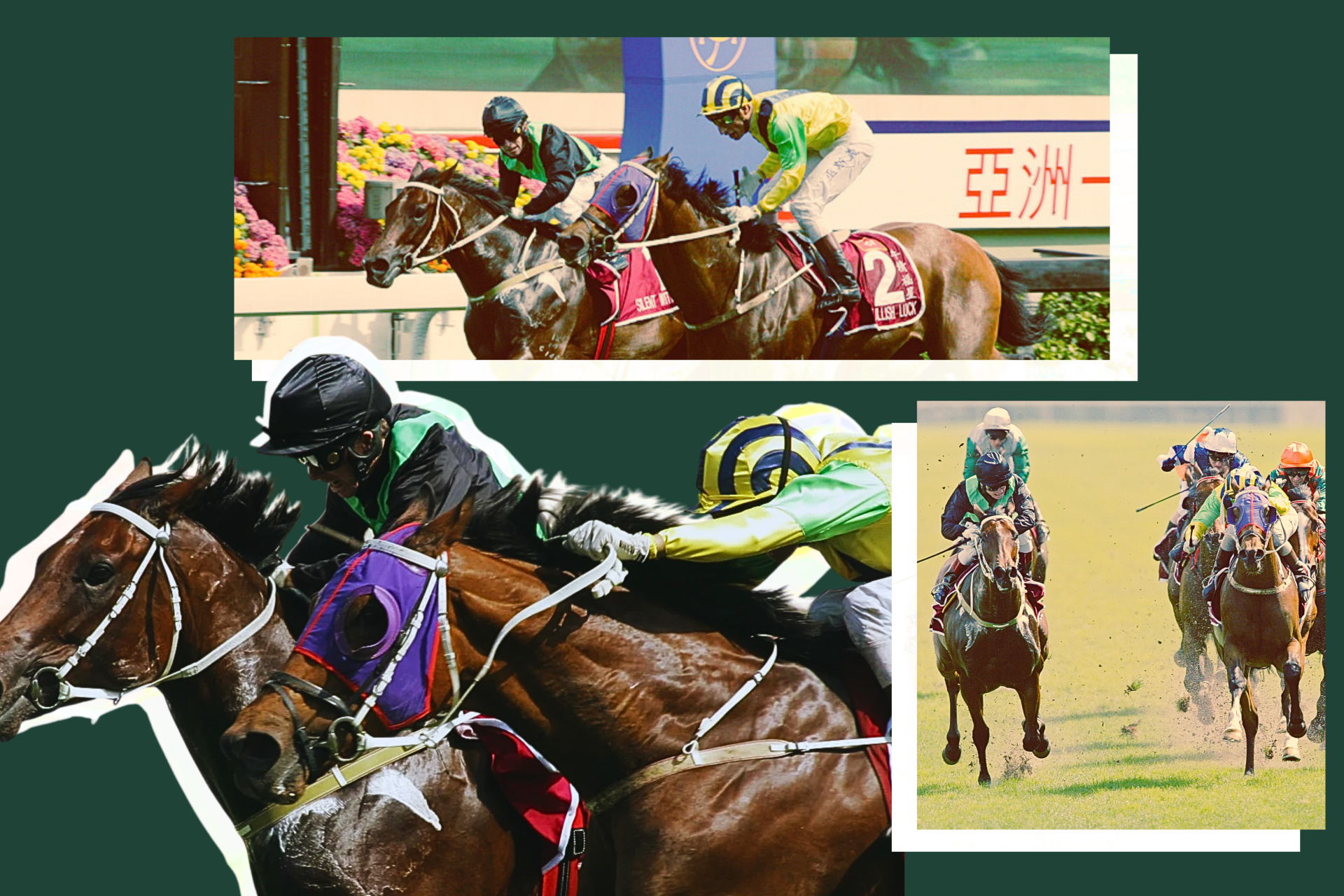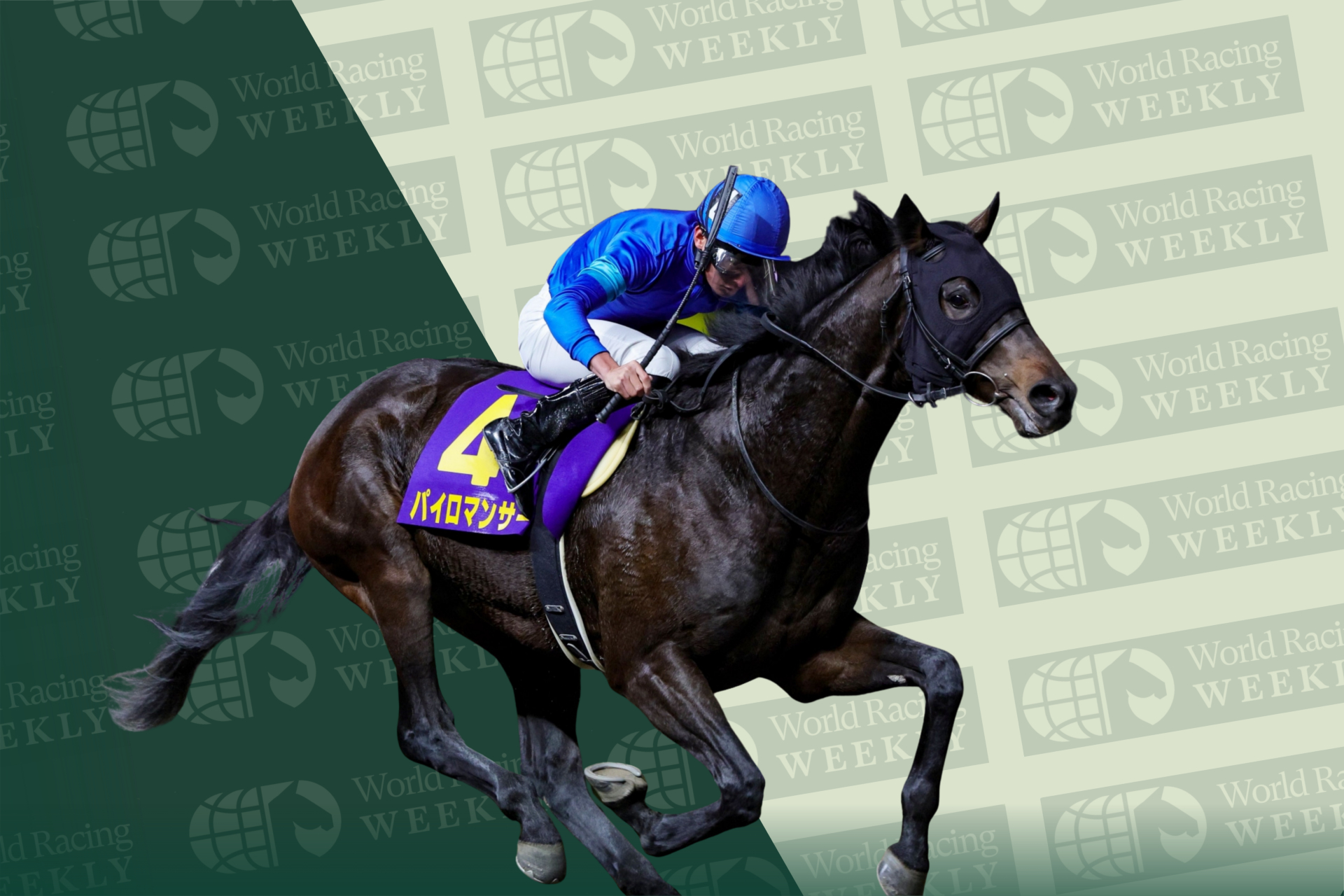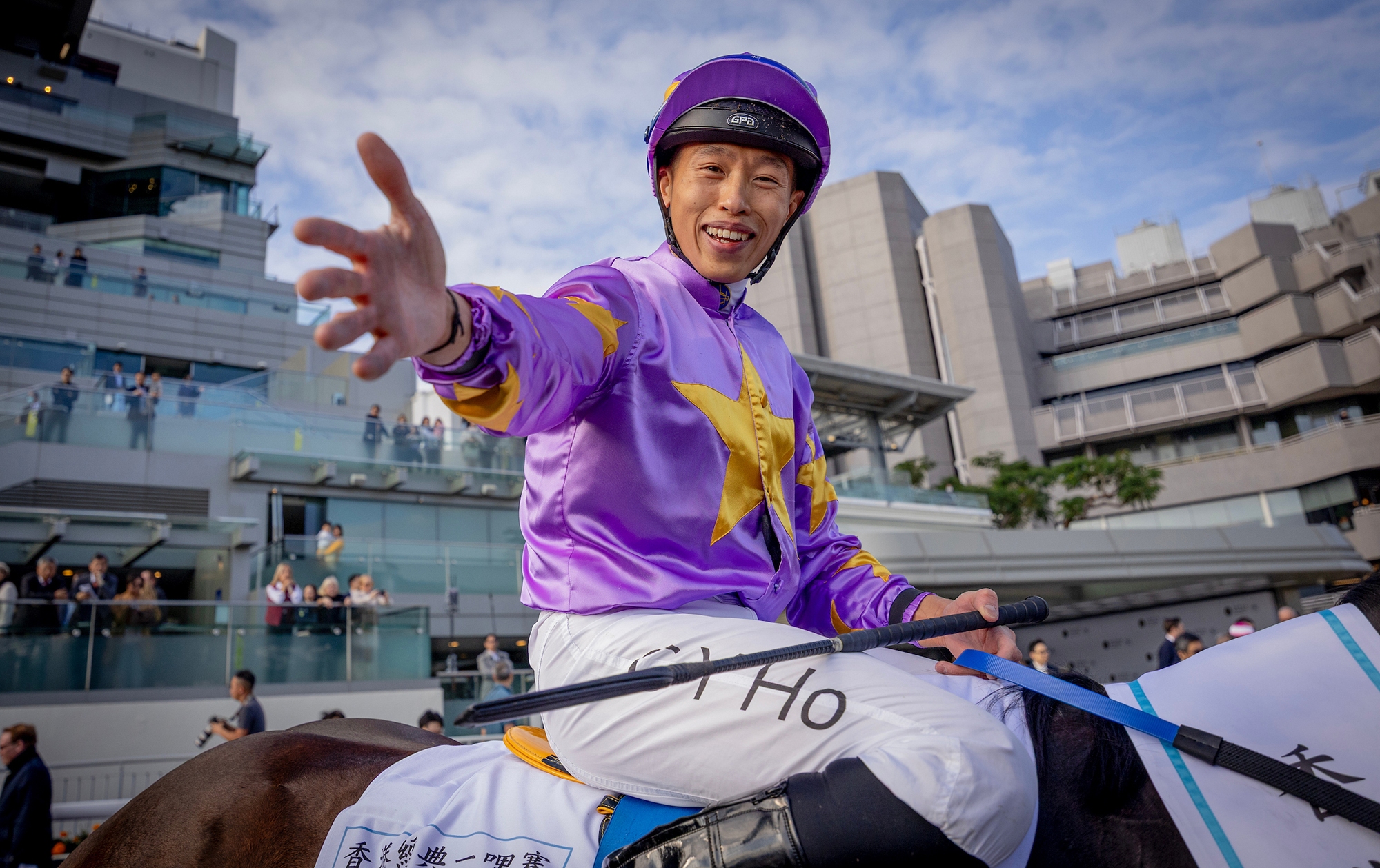It only took the mere mention of the words ‘world jockey series’ last week and the faintest whiff of a new idea for the takedowns to start from racing’s part-time pundits on social media.
“I have already heard the trash talking,” Christophe Lemaire told Idol Horse in the days after plans emerged for a jockey series featuring 12 of the sport’s biggest names.
A couple of weeks earlier in Hong Kong, outspoken American owner John Stewart rented a conference room at a luxury hotel in Kowloon and handed out free merchandise – trading cards, T-shirts and hats featuring his globetrotting star Goliath – to racing fans.
“Take as much as you want,” he told the more than 100 fans that queued for the 9.30am start. For more than two hours on race morning Stewart spoke with each fan individually as he signed memorabilia and took an interest in each young person’s journey to racing fandom.
What the idea of the global jockey series and Stewart’s fan events have in common is that they are both self-funded efforts to promote the sport and did not receive official industry support or recognition. Worse still, the two initiatives both received their share of derision from so-called supporters of horse racing.
It leaves one to ponder: is racing as a sport – from its administrators to the hardcore fanbase that proliferate social media platforms like X – too quick to dismiss new ideas?
The idea of a world jockey series is still in its relative infancy: a franchise-based global series featuring 12 of the best-known jockeys in the world – the riders also acting as ‘team principals’ and given equity in the series – competing on a circuit of iconic racecourses. Other riders joining Lemaire in support of the concept are Yutaka Take, Frankie Dettori, Zac Purton, Joao Moreira, Ryan Moore, James McDonald, William Buick, Vincent Ho, Mickael Barzalona, Flavien Prat and Irad Ortiz Jr.
Here are a dozen of the biggest names in the sport lending their profile and reputation to a new way to market the sport they love, one that is struggling to gain support from a young audience.
“I am very excited about this project,” Lemaire said. “I want to try to make horse racing bigger again and I have tried some different ways to promote the sport. I think this approach is what horse racing needs to rebound and become competitive again with the most famous sports in the world.
“Everybody has their way of thinking, OK, I can see your point of view. Just listen to our arguments and let’s move forward.”
Lemaire speaks of “the very Anglo-Saxon or European way of thinking” when asked about his frustration with the way horse racing is promoted globally. The Frenchman has made his fame and fortune on the lucrative Japan Racing Association (JRA) circuit – where horses and jockeys are both stars – and marketing has shifted to be something more in line with other mainstream sports.
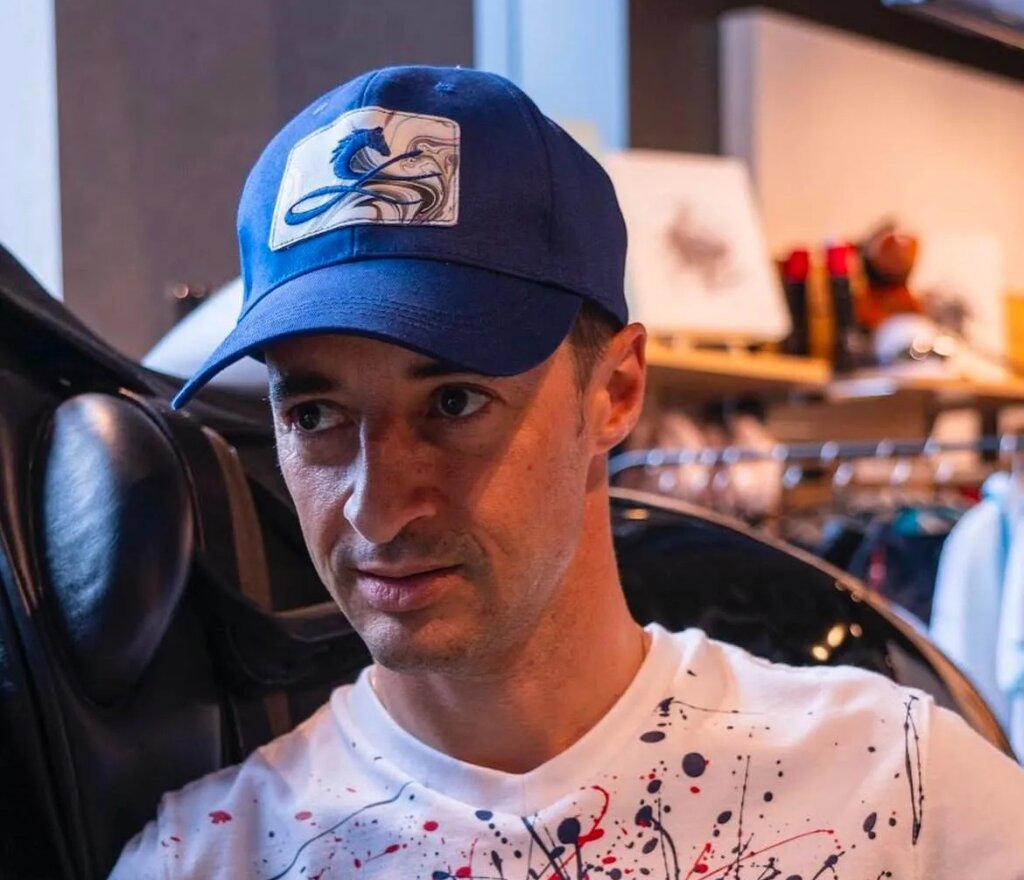
But even for all the JRA’s laudable marketing efforts, which include promoting the horse as central and successful initiatives that have allowed women to feel welcome and safe at racecourses, the fact is that racing’s greatest marketing success story in Japan, and perhaps the world, is Umamusume.
That an anime-based, mobile phone game franchise has made billions of dollars with detailed storytelling using ‘horse girl’ representations of real racehorses suggests that horse racing is not doing all that it can.
Again, the JRA and many major owners have not embraced Umamusume despite its level of detail and broad appeal, even as the man who has profited most from Umamusume, owner Susumu Fujita, has spent tens of millions on horses.
Lemaire’s self-funded initiatives to promote horse racing range from a clothing brand to hip-hop records. It is clear that these business ventures are by no means money-grabbing efforts for a man who has won more than 2,000 races competing in the highest prizemoney jurisdiction in the world. The initiatives come from a 45-year-old that can see the finish line of a career and is desperate for a creative and competitive outlet that can help him give back to the sport he loves.
“Some of the criticism I have heard is that, ‘Oh, these jockeys already have the money,’ but making money is not our goal,” he said. “Our goal is to promote horse racing and for it to be alive for many years after this. At the beginning there will be 12 jockeys but hopefully it is something that goes for many years to come. As new riders come in, they will get the chance to make themselves more famous. Horse racing is not wealthy everywhere, a lot of racetracks are struggling and in England some jockeys drive hours for very little prizemoney, they pay to do their job and this is unacceptable.”
Stewart said the criticism of his big spending on bloodstock – including from his rival owner Mike Repole – had stung given his motivation to simply be part of a sport he loves.
“I do this because I started as a fan and when I started I was intimidated. Even when I had money, I was intimidated,” Stewart said of his motivation for the fan meet-ups, which also included one on Japan Cup eve in Tokyo late last year that required police intervention after more than 1,000 fans showed up in the street. “When I go to the races, the jockeys are cordoned off in their own section, then you have the owners and trainers in there as well, and it is as if there is a wall. As a fan it feels like you are never going to get on the other side of the wall, but I got on the other side of the wall and thought, ‘This is pretty cool’ and so I want to share that.
“A 17-year-old kid turned up here today and maybe one day he will go into investment banking and make millions and then the passion he has for the game – if we foster it – could make him a big owner one day.”
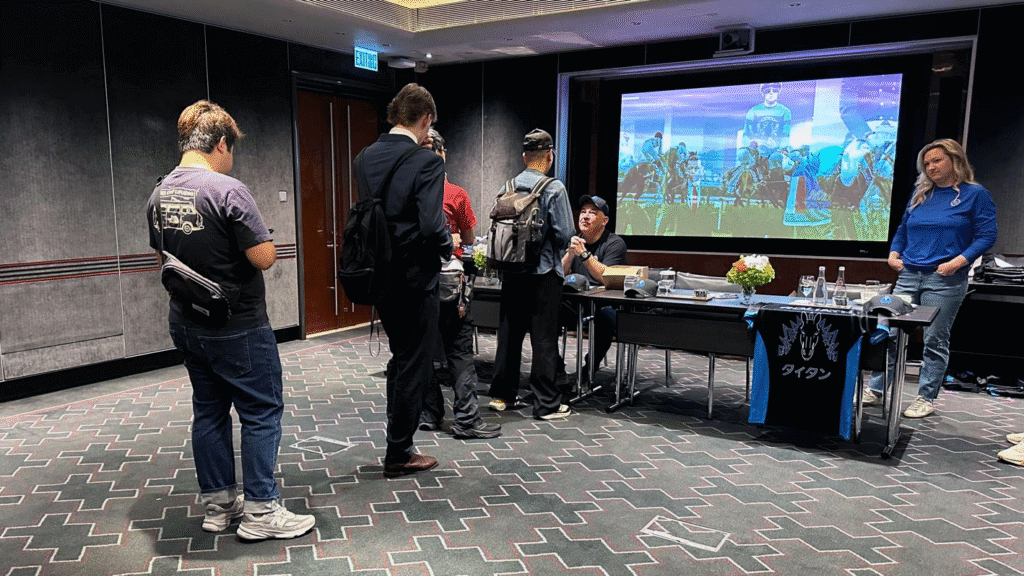
Stewart is now on the other side of the velvet rope but is realistic as to why: “I just got accepted by racing because I have spent a lot of money,” he said, touching on what should be a sore point for the sport – that big money newcomers are too often seen as victims to be fleeced by shrewd veterans within the insular bloodstock scene.
“I can see how hard it is to break the barriers,” Stewart said. “I am just trying to open up the sport to younger fans, and one day they could become important players.”
Lemaire’s earnest approach is refreshing in a sport that struggles to take pride in itself in the face of criticism.
“If you think what we are trying to do doesn’t work, OK, but at least we are trying,” he said. “Formula 1, rugby, basketball – these are our competitors. If you like horse racing, be a supporter and believe in new ideas. Let’s work together.” ∎





